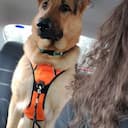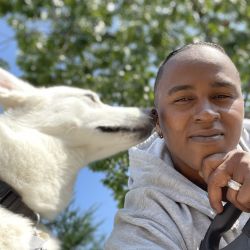Origins and Temperament
The Catahoula Leopard Dog boasts a storied lineage as Louisiana's state dog, with roots tracing back to a mix of Indigenous American dogs and the canines brought by Spanish explorers. Known for their versatility as hunting and herding dogs, this breed exhibits assertiveness, intelligence, and a protective nature. Such traits necessitate a transport environment that caters to their active disposition, ensuring their journey is not just safe, but also mentally stimulating.
Size and Physical Needs
Typically weighing between 50 to 95 pounds, the Catahoula Leopard Dog's robust frame requires adequate space during transportation. Renowned for their boundless energy reserve and a penchant for exploration, these dogs' transport must facilitate movement and regular exercise. Their short coat offers minimal protection against extreme weather, so climate-controlled environments are crucial during transit.
Common Health Considerations
The breed is prone to hip dysplasia, deafness, and sight issues like cataracts. For travel, ensure that all health documentation, especially relating to these conditions, is current and readily available. Preventative measures like securing a stable crate and providing a stress-free environment can help minimize potential discomfort on the road.
















